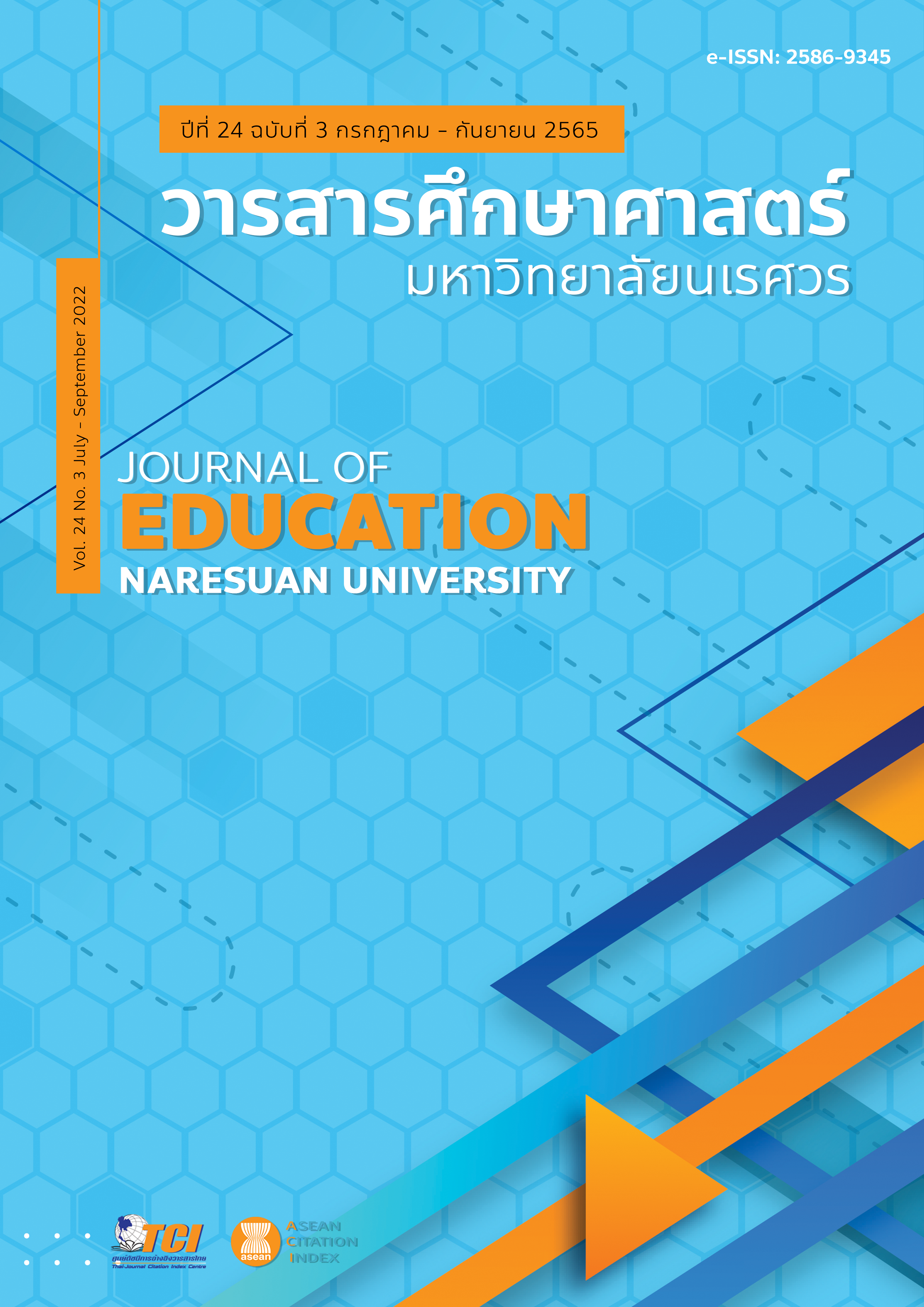THE PRIORITY NEEDS OF SECONDARY SCHOOL MANAGEMENT BASED ON THE MAIN GOALS OF EDUCATIONAL DEVELOPMENT PLAN IN EASTERN ECONOMIC CORRIDOR ความต้องการจำเป็นในการพัฒนาการบริหารโรงเรียนมัธยมศึกษาตามเป้าประสงค์หลักของแผนพัฒนาการศึกษาในพื้นที่เขตพัฒนาพิเศษภาคตะวันออก
Main Article Content
Abstract
The purpose of this research was to study the priority needs secondary school management based on the main goals of educational development plan in Eastern Economic Corridor. This research applied a quantitative approach. The population were secondary schools in Eastern Economic Corridor, under the secondary educational service area office, totally 79 schools. The sample were 66 secondary schools, selected by applying stratified random sampling, and simple random sampling. The key respondents were 240 people including administrators, teachers, students and parents. The research instrument was a questionnaire. The data were analyzed by frequency, percentage, means, standard deviation and PNImodified. The research result turned out as follows. The priority needs of secondary school management based on the main goals of educational development plan in Eastern Economic Corridor could be classified with regards to secondary school management. Overall, the highest priority needs index fell on Evaluation (PNImodified=0.319) and Planning (PNImodified=0.302) and Implementation (PNImodified=0.292), respectively. When classified with the main goals of educational development plan in Eastern Economic Corridor. Overall, the highest priority needs index fell on Educational institutions as learning centers for manpower development in the Eastern Economic Corridor (PNImodified=0.338) and Learners (PNImodified=0.326) and Administrators, teachers and education personnel (PNImodified=0.301) and Participation in educational management of all sectors (PNImodified=0.259), respectively.
Article Details

This work is licensed under a Creative Commons Attribution-NonCommercial-NoDerivatives 4.0 International License.
The owner of the article does not copy or violate any of its copyright. If any copyright infringement occurs or prosecution, in any case, the Editorial Board is not involved in all the rights to the owner of the article to be performed.
References
Buaplainsee, N. (2018). Personel development model in the Eastern Economic Corridor to support future target industries. Journal of Suvarnabhumi Institute of Technology (Humanities and Social Sciences), 4(6), 303-315. [in Thai]
Kast, F. E., & Rosenzweig, J. E. (1970). Organization and management: A systems and contingency approach. TX: Mcgraw Hill.
Ministry of Education. (2017). Educational development plan in eastern economic corridor (2017-2021). Retrieved from http://bps.sueksa.go.th/educational-development-plan-in/ [in Thai]
Naweekarn, S. (2005). Strategic management (2nd ed). Bangkok: Bhannakij Printing House. [in Thai]
Nuliang, P., Chanetiyang, D., & Wannasuthee, N. (2015). Development of educational management participation model of Phatthalung Province. Parichart Journal, Thaksin University, 2(28), 232-253. [in Thai]
Office of the Education Council. (2016). Strategic Plan of The Office of the Education Council (B.E.2559-2564). Bangkok: Prikwarn Graphic. [in Thai]
Mahahing, S. (2017). The learning resources administration of The Basic Educational Institutes of Khon Kaen Primary Educational Service Area Office 4. Praewa Karasin Journal, Karasin University, 4(3), 574-589. [in Thai]
Tangtragulpaisan, P. (2017). Private schools brand management strategies according to the concept of reducing government budget in education (Doctoral dissertation). Bangkok: Chulalongkorn University. [in Thai]
The Eastern Economic Corridor Office of Thailand. (2018). Human, educational, research and technology development plan to support the eastern economic corridor. Retrieved from https://www.eeco.or.th/content/humanplan [in Thai]


